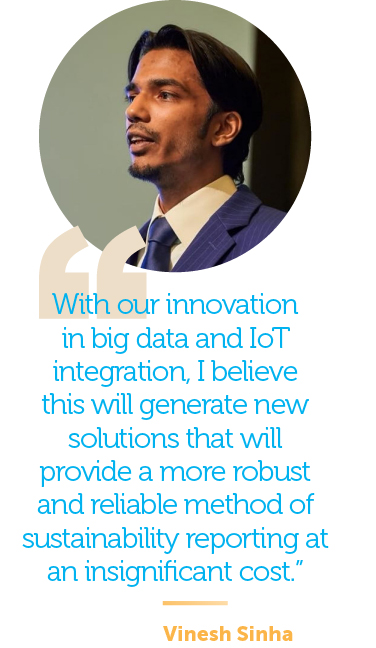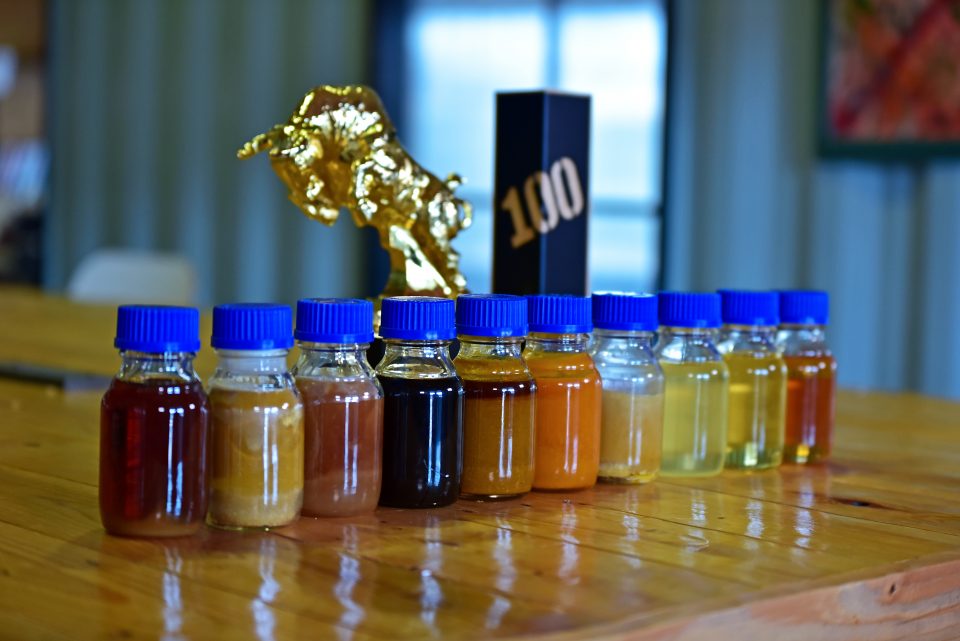 The global biofuels market is projected to reach USD$246.52 billion by 2024 at a CAGR of 4.92%, according to a recent study by Transparency Market Research. Currently, Europe and Brazil are the major consumers of biofuels for electricity and transportation, especially in the aviation industry, while Asia Pacific is another fast-growing region after Europe and North America. Biofuels are projected to be another growing segment within the renewable energy market and it offers numerous opportunities for both new start-up companies and traditional companies.
The global biofuels market is projected to reach USD$246.52 billion by 2024 at a CAGR of 4.92%, according to a recent study by Transparency Market Research. Currently, Europe and Brazil are the major consumers of biofuels for electricity and transportation, especially in the aviation industry, while Asia Pacific is another fast-growing region after Europe and North America. Biofuels are projected to be another growing segment within the renewable energy market and it offers numerous opportunities for both new start-up companies and traditional companies.
Despite the rather rosy outlook of the global biofuel industry, in Malaysia, however, the production of biodiesel in the country is still far below capacity even though the National Biofuel Policy released in March of 2006 spelled out objectives to use environmentally friendly and sustainable energy sources to reduce dependency on fossil fuels and stabilize and boost palm oil prices. The plan was for biofuels to be produced for transport, industry and export while developing home grown biofuel technology and second-generation biofuels. In 2007, Parliament passed the Biofuel Industry Act which included provisions for the Ministry of Plantation Industries and Commodities to implement a biodiesel blend mandate. Following that, to promote domestic consumption of biodiesel, the 11th Malaysia Plan (2016 – 2020) outlined a B15 transport mandate by 2020 for the on-road sector. However the mandate was issued without any details on implementation. Due to industry overcapacity and the freeze in issuing new licenses for biofuel processing plants, expansion in the biofuel plant production capacity in Malaysia looks disappointing.
Yet, increasing global consumer awareness have led to governments demanding that renewable liquid fuels deliver economic benefits while mitigating the negative effects associated with petroleum products. This bio-economy defined by Golden & Handfield (2014) as “…the global industrial transition of sustainably utilizing renewable aquatic and terrestrial resources in energy, intermediate, and final products for economic, environmental, social and national security benefits…” describes the economic migration to bio-renewable feedstocks for liquid fuels. The global bio-based economy has been initially based on first generation biofuels produced primarily from food crops such as grains, sugar cane and vegetable oils. This led to the “food-versus-fuel” debate which then led to the development of new biofuels from non-food based lignocellulosic feedstock. Compared to first generation biofuels, second generation cellulosic alcohols side step the food-fuel controversy while benefiting from lower lifecycle greenhouse gases (GHG) emissions. However, barriers to commercialize the cellulosic biofuels industry include feedstock costs and availability, high production costs, high capital requirements as well as various policy, technical, environmental and social issues.
These perceived barriers however didn’t deter Malaysia’s Vinesh Sinha of FatHopes Energy from diving headlong into an industry that the typical Malaysian undergraduate wouldn’t even look twice at. However, the power of conviction reigned supreme in Vinesh, inspired by an episode of Top Gear where Jeremy Clarkson ran a diesel vehicle on used cooking oil. His enthusiasm was further boosted by seeing biodiesel fuel pumps in London, and revved by the prospect of selling biofuel to a ready-buyer in London, Vinesh threw caution to the wind and pursued the path he was determined to follow.
He set up FatHopes Energy in 2010 after spending two years collecting used cooking oil from food outlets and homes and converting it into biodiesel. His venture was solely focused on waste and residues. By aggressively growing his supply chain by influencing and educating more and more producers in the region, the regular bulk volumes enabled FatHopes Energy to supply global biofuel players with the feedstock required allowing them to scale the business quickly. Through innovative solutions like the Smart Tank, FatHopes Energy is poised to be the single most transparent supplier of waste and residue feedstock globally.
Vinesh’s early success in supplying biofuel or biodiesel feedstock to various established oil and gas companies around the world, very quickly saw him secure a global contract with MacFood Services. In spite of all the perceived barriers associated with the biofuel industry, the company has since generated USD$147.6 million in sales last year along with the conversion of 150.5 million kilograms of waste oil to biofuel. 
Currently, Vinesh and his team are working on servicing the ASEAN region by 2020, with Indonesia and neighbouring countries as the next sites for expansion. With the growth of regular exports of biofuels and biofuels feedstock to major oil and gas companies in Europe, Vinesh is very vocal about the lack of players entering the industry. As Vinesh expresses, “the potential of the biofuel industry is huge. I am only supplying a nominal percentage of the capacity that is required globally, the industry is largely untapped as most young entrepreneurs in Malaysia prefer businesses they perceive as sexier, like tech start-ups, not realizing they don’t have ready buyers and as such have a high potential for failure.”
Through innovation, Vinesh has revolutionized the industry and believes strongly that more participation in the bio-economy would take it up another level in the future. His state of the art traceability system using IoT technology offers live remote monitoring across all participating outlets providing reliable data monitoring, logistical efficiency and accurate calculations on GHG emissions.
“With our innovation in big data and IoT integration, I believe this will generate new solutions that will provide a more robust and reliable method of sustainability reporting at an insignificant cost. Promoting sustainable waste and residue feedstock accumulation for the purpose of advance biofuel production must come with downstream innovation that engage multi stakeholders to ensure consistency of large feedstock volumes.”
Globally the demand for biofuel is increasing and enterprising young Malaysians like Vinesh Sinha have proven that the perceived entry barriers into the industry can be overcome with the right attitude, unshakeable conviction and an unquenchable thirst to do things better, differently and with high economic and technological impact.






